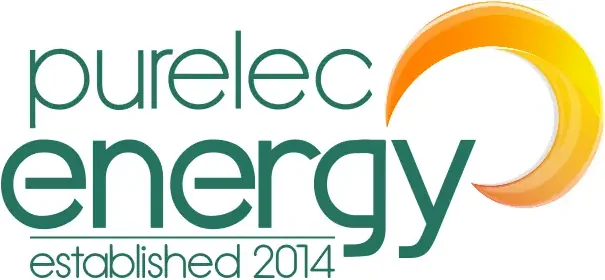
Solar panels have long been the premier choice for generating your own electricity, providing significant environmental benefits as well as considerable economic advantages.
Understanding the costs and savings associated with solar power is crucial for homeowners and businesses considering this green energy solution. In this article, we delve into the financial aspects of solar power specific to the UK, helping you make an informed decision.
Initial Costs: What to Expect
Parts and Equipment
A solar power system is made up from multiple components, the core of which is the panels themselves. Prices for solar panels can vary based on the type and efficiency of the panels. For example, Monocrystalline panels, known for their high efficiency, tend to be more expensive than polycrystalline panels. Additionally, you’ll need an inverter to convert the solar energy into usable electricity, mounting hardware, and wiring. Alongside this, it’s highly recommended to include a battery storage solution for your system, allowing you to store energy for use later on.
Solar Panel Installation Costs
The cost of installation can also be significant and varies depending on factors such as the complexity of the installation and the roof type. These factors determine what safety equipment is required – such as scaffolding and lifting apparatus – as well as the amount of manpower required to get the job done.
Planning Permission
Most small scale solar panel installations won’t require planning permission, so long as they fall under the Permitted Development Rights criteria. However, you’ll need to check if you need planning permission from your local council before you start. If you do require planning permission, fees will vary by location but are an essential part of the process.
Ongoing Costs: Maintenance and Upkeep
General Maintenance
Other than periodic cleaning to remove dirt and debris, solar panels require minimal maintenance. However, it is important to monitor the system’s performance to ensure it’s operating efficiently. Some systems come with monitoring software to help with this.
Inspections and Servicing
Depending on the system you choose, the manufacturer may recommend having your equipment serviced from time to time. Although this is not a legal requirement, it is important, as not servicing your equipment may void the warranty.
Replacement Parts
As with any piece of equipment, the components that make up your system are subject to wear and tear, meaning that over time you’ll need to replace some of the parts. This can include everything from inverters, which typically need to be replaced every 10-15 years, to the panels themselves, which are usually rated for up to 25 years. Therefore, replacement parts are an additional cost to consider over the lifespan of your solar power system.
Financial Incentives in the UK: Reducing Your Initial Investment
Smart Export Guarantee (SEG)
The Smart Export Guarantee (SEG) is a UK government initiative that allows homeowners to sell excess energy back to the grid. This programme ensures you get paid for the renewable electricity you generate but do not use.
0% VAT
In 2022, the government launched a 0% VAT rate for energy-saving materials, such as solar panels. The initiative aims to make renewable energy more accessible and will run until March 2027. The scheme is applicable to residential properties and reduces upfront costs significantly, saving an average family over £2,000 on the installation of solar panels. Furthermore, it also covers items such as heat pumps and insulation, promoting broader adoption of energy-efficient technologies.
Long-Term Savings: The Economic Benefits
Reduced Energy Bills
One of the most immediate benefits of installing solar panels is the reduction in your electricity bills. By generating your own power, you’ll rely less on your utility company, leading to significant savings over time.
Return on Investment (ROI)
The ROI on a solar power system can be substantial. While the initial investment can be high, the long-term savings on energy bills will eventually cover the cost of installation. After this period, the electricity generated by your solar panels is essentially free, providing continuous savings.
Increased Property Value
Homes with solar power systems often have higher property values and sell faster than those without. Potential buyers are attracted to the prospect of lower energy bills and a smaller carbon footprint.
Energy Independence
By generating your own electricity, you become less vulnerable to energy price fluctuations and supply disruptions. This energy independence can provide peace of mind, especially during volatile times.
Weighing Up the Costs and Benefits
The cost of installing solar power in the UK can often involve a significant initial investment, but the long-term financial benefits can also be substantial. By carefully considering the costs and benefits, and taking advantage of available incentives, you can make an informed decision that not only benefits your wallet but also contributes to a more sustainable future. Solar power is not just an investment in your home or business; it’s an investment in our planet.
Can Solar Panels Save You Money?
Every home and every business is different. That’s why we provide a bespoke service, ensuring you get the most our of your investment. Find out how much you can save today by speaking to our team today. Simply fill out our contact form or call us on 01924 840 198
